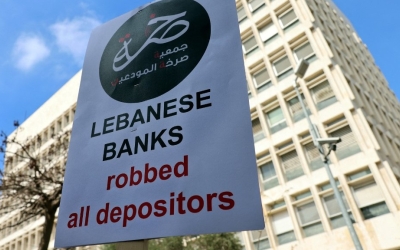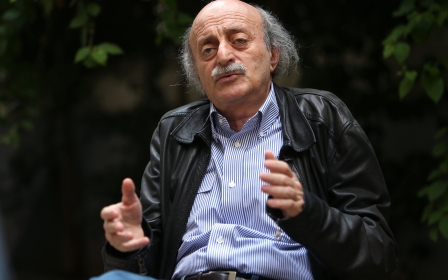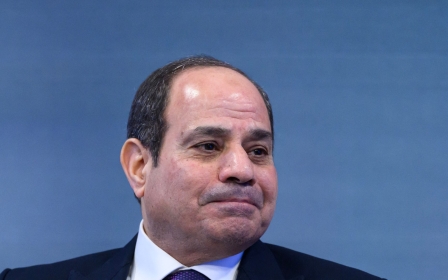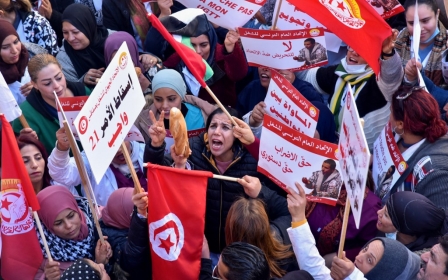Arabic press review: Former Tunisian president urges army to cut ties with Saied
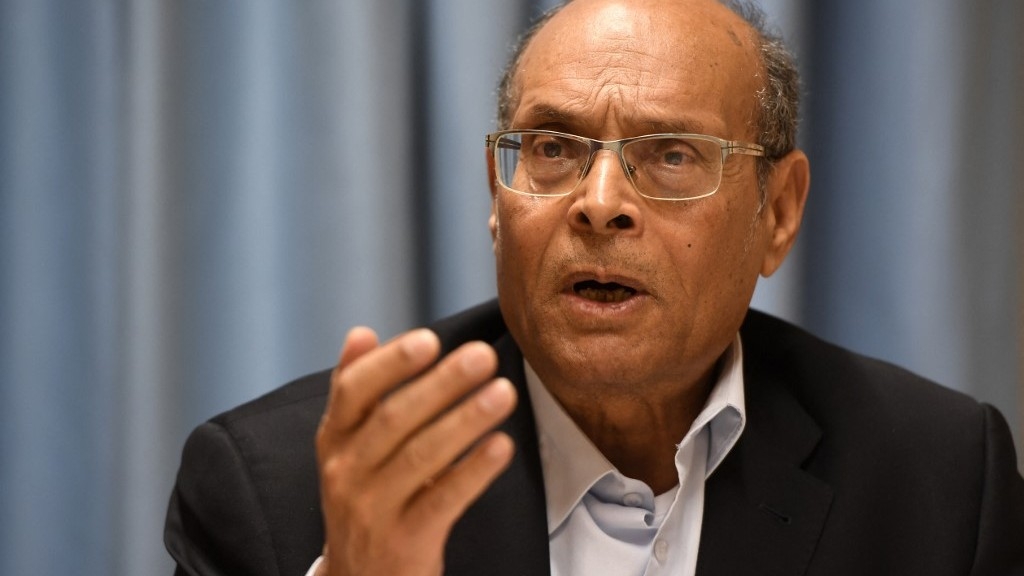
Former Tunisian president calls on army to stop supporting Saied
Former Tunisian President Moncef Marzouki urged the army to cut its support of President Kais Saied before the country is plunged into further crisis, in an exclusive interview with Al-Quds Al-Arabi this week.
Marzouki told the paper that Saied had "lost all legitimacy" and called for the immediate release of political prisoners, including the Ennahda Movement head, Rached Ghannouchi.
"The imprisonment of patriots, secularists and democratic Islamists, not to mention Ghannouchi, is a disgrace to those who imprisoned him. Of course, he and all political prisoners must be released immediately," he told the paper.
"The demand is not directed at the insurrectionist, but rather at the military and security forces who are supposed to understand the danger of continuing to walk behind a man who is not qualified to lead the country."
New MEE newsletter: Jerusalem Dispatch
Sign up to get the latest insights and analysis on Israel-Palestine, alongside Turkey Unpacked and other MEE newsletters
Marzouki also criticised Saied's renewal of diplomatic ties with Syria, as well as the return of Damascus to the Arab League, calling the body "a club of dictatorships".
Protesters attack banks in Lebanon
Protesters attacked several banks in Beirut on Thursday over frustration at being prevented from accessing money in their accounts for more than three years, the Arabi21 news website reported.
Demonstrators smashed the facades of Bank Audi and Bank of Beirut and then set fire to rubber tyres at their entrances.
One of the demonstrators raised a banner calling on the United States and the European Union to stop protecting the "thieves" in Lebanon, while protesters also chanted slogans against Prime Minister Najib Mikati.
The protesters tried to block traffic in nearby roads, but an army force intervened and drove them away without any injuries or clashes.
This is only the latest protest since 2019 when the country sank into a severe economic crisis, prompting banks to limit the amount of money their clients could withdraw.
In turn, many Lebanese have been left in debt and unable to pay their bills.
BBC journalists in Egypt demand equal pay
Dozens of workers at the BBC office in Cairo staged a strike on Wednesday demanding wages equal to BBC colleagues in other offices in the Middle East, Al-Araby Al-Jadeed newspaper reported.
Journalists at the Cairo office told the paper that their salaries are six times lower than their colleagues in the region, a point they said they had previously raised with the broadcaster without seeing a change in policy or receiving a response.
They said the value of their salaries had declined in the past few years as a result of the depreciation of the Egyptian pound against the US dollar.
The employees hung banners inside the office stating the date and reason for the strike and emphasising that their action was for one day only.
The head of the Egyptian Journalists Syndicate, Khaled el-Balshy, who participated in the strike, announced his full solidarity with the journalists and office workers and said he was in contact with the BBC management office in Cairo.
Egypt has witnessed a sharp rise in prices over the past year, which has led to an increase in inflation and weakened the purchasing power of millions of Egyptians.
Last October, the Central Bank of Egypt announced a move to a flexible exchange rate, causing the pound to depreciate by an additional 23 percent and bringing the total decline since February 2022 to around 50 percent.
*The Arabic press review is a digest of news reports not independently verified as accurate by Middle East Eye.
Middle East Eye delivers independent and unrivalled coverage and analysis of the Middle East, North Africa and beyond. To learn more about republishing this content and the associated fees, please fill out this form. More about MEE can be found here.


